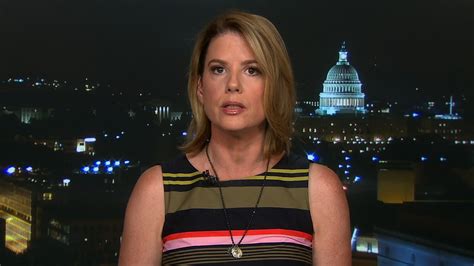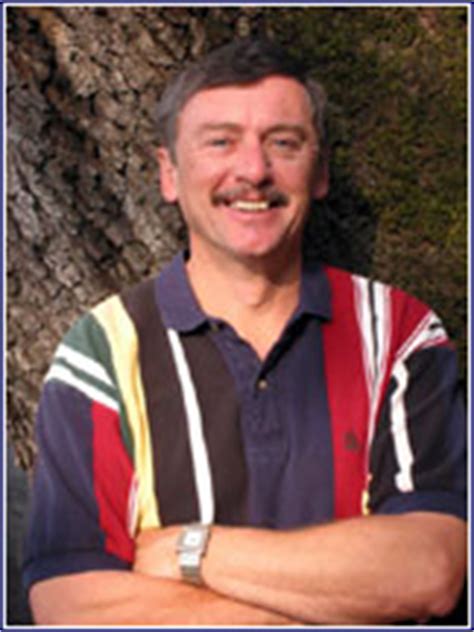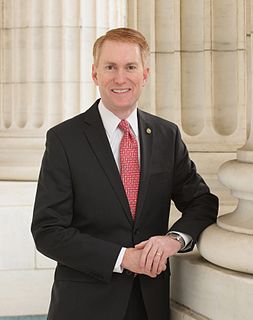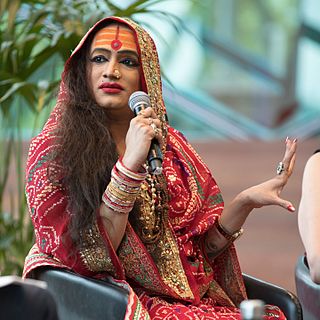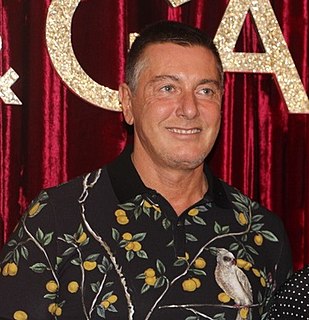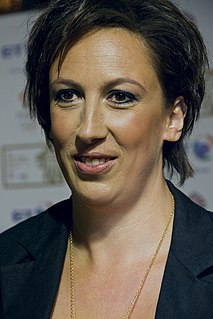A Quote by Kirsten Powers
It was many years until I started meeting other people who were like me: very progressive-minded politically but also very conservative theologically.
Related Quotes
People in Israel would write in a high register, they wouldn't write colloquial speech. I do a special take on colloquial speech. When I started writing, I thought [the language] was telling the story of this country: old people in a young nation, very religious, very conservative, very tight-assed, but also very anarchistic, very open-minded. It's all in the language, and that's one thing that doesn't translate.
Conservative thinking is a very important part of Republican Party and the Republican Party is very important to the conservative movement. Since the 1960's, the polarization of the two parties and their alignment with essentially liberal and progressive and conservative thinking respectively is one of the big changes and it's made it really hard to separate those two out and so party and ideology are much more intertwined today than they were even 20 years ago, let alone 40 years ago.
In the thirties a whole school of criticism bogged down intellectually in those agitprop, social-realistic days. A play had to be progressive. A number of plays by playwrights who were thought very highly of then - they were very bad playwrights - were highly praised because their themes were intellectually and politically proper. This intellectual morass is very dangerous, it seems to me. A form of censorship.
Cartoons were very conservative. The country was very conservative. Although the liberals were allegedly in charge for a long time, there was a very acceptable balance what people would talk about in public. And I wanted to stretch those and move further out. And as the civil rights movement began, I started doing cartoons on that and on sit-ins and I was, along with Bill Mauldin, a great cartoonist out of World War II, arguably one of two white cartoonists doing this kind of work, Bill and me.
I have a terrible time during elections. I am way too politically involved. I absolutely never argue politics with anyone, as it makes me crazy and full of judgment and hostility. I have two very conservative friends, whom I cherish and would entrust my life to; we avoid politics like the plague. So in a certain way, it limits how completely we let ourselves know each other, but this is just the way it is and it is the best we can do. And I am secretly convinced that God is a progressive Democrat.
Over the years, black leaders have been slow to recognize the need for a very, very progressive agenda. Anytime someone has talked about putting America back to work, blacks should have said yes, but they didn't. They were so preoccupied with affirmative action that they didn't provide the kind of leadership that would help some of the other progressive folks. Only now are black leaders beginning to realize the impact of economic issues.
I do not like to call myself a Liberal, because there is so much that is wrong with liberalism. I also do not like to call my a Conservative for exactly the same reason. The fact that the theater of conservativism today seems to be such a haven for such an abundance of small minded, non-thinking, irrationalists is however making it very difficult for me to not adopt a harder stance.
You also had in Detroit that summer, an early variation of Ferguson. A black prostitute was shot in the back by police. And all of the efforts that a very progressive police chief and mayor of that period had put into trying to restore race relations started to fall apart again, and you could see that unraveling for several years until the riots or rebellion of 1967.
When I started meeting members of the hijra community, it was a whole different ballgame. They were like me. This was the first time I felt that I was with other people who were the same as me. It was not about cruising a man, it was not about sleeping with somebody - it was beyond that. It was so much a community, wanting the best for each other, loving each other, caring for each other.
The scientists I looked up to at the beginning were not Latino. They were famous scientists of many years ago, like Madame Curie. Later, I realized that there were also, but a very few, Latino scientists. There were good ones, but very few, because there wasn't as much a tradition to be a scientist in our culture. But this is changing.
I had a few problems. I didn't realise it until I started going to therapy. I did it for 10 years, two days a week, and pretty quickly I understood that a lot of my suffering, many of my issues, were rooted in my realising that I was gay when I was a little boy. I knew I was different. That made me very fragile.
I think, for a shy person - and I was very shy until my mid-20s - having been to an all-girls' school is not brilliant on the boyfriend front later. Because when I went to university, it was definitely like meeting a new species of people. Suddenly, at age 19, I was thinking: 'Can you speak to these people?' I was very, very nervous.
